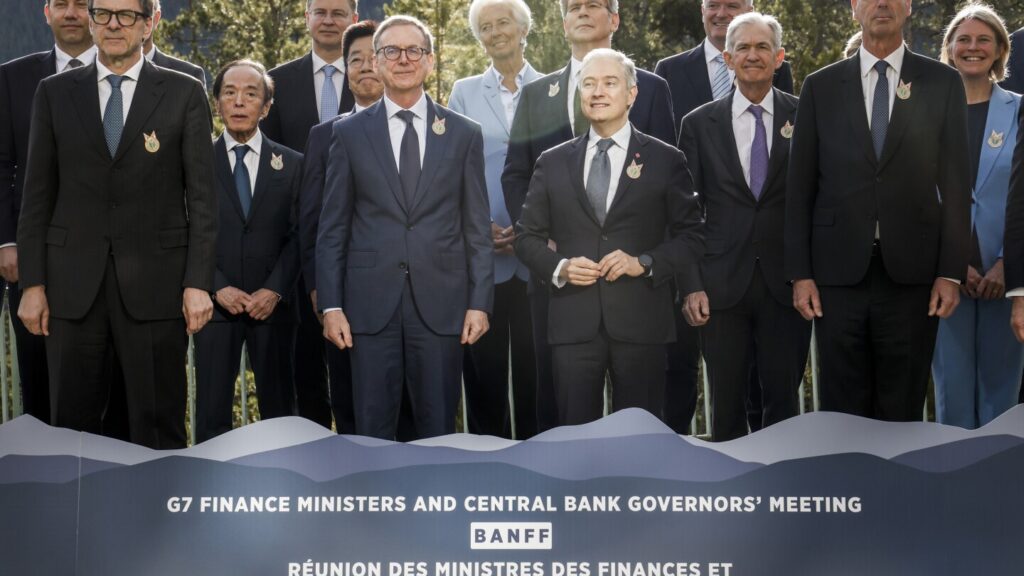BANFF, Alberta (AP) — Top finance officials from the world’s seven wealthiest democracies set aside stark differences on U.S. tariffs and agreed to counter global “economic imbalances,” a swipe at China’s trade practices.
In a communiqué issued Thursday, the Group of Seven finance ministers and central bank governors, meeting in the Canadian Rockies, left out their traditional defense of free trade and toned down their references to Russia’s war in Ukraine compared with last year. But they did agree that further sanctions on Russia could be imposed if the two countries don’t reach a ceasefire.
The communiqué said the G7 members would continue to monitor “nonmarket policies and practices” which contribute to imbalances in global trade. The statement did not mention China but nonmarket policies typically refer to that country’s export subsidies and currency policies that the Trump administration charges gives it an advantage in international trade.
The communique’s call to address global imbalances and nonmarket practices was a key goal of the Trump administration leading up to the meeting.
The high-profile gathering of officials from the United States, Canada, United Kingdom, Japan, Germany, France, and Italy appeared to be more congenial than an earlier meeting of G7 foreign ministers in March. Yet that meeting, also in Canada, occurred as President Donald Trump was in the midst of threatening stiff tariffs on Canada and suggesting it could become the 51st state.
Canada is president of this year’s G7 and the sessions this week are intended to lay the groundwork for a meeting of the heads of state on June 15-17 in Kananaskis, Canada. The White House said Thursday that Trump will attend that gathering.
“Throughout our G7 presidency, the tone of the discussions has become progressively more constructive,” Tiff Macklem, governor of the Bank of Canada, said at a news conference at the conclusion of the summit.
Yet that unity appears to have been achieved by jettisoning many items that in the past had been agreed to by the G7 countries. In addition to leaving out any mention of trade, the communiqué dropped sections on combating climate change and cooperating on international tax policy, issues the Trump administration has dismissed.
“This year our focus was to return to the G7 core mission, restoring global growth and stability,” said Francois-Philippe Champagne, Canada’s finance minister.
The shift comes as Trump has slapped widespread tariffs on imports, including a 10% global duty on all goods, even those from the other G7 allies. Trump has also imposed 25% tariffs on steel, aluminum, and cars, and on April 2 imposed much steeper tariffs on about 60 nations, which he then paused until early July.
Valdis Dombrovskis, European Union Trade Commissioner, said that trade was “obviously a difficult topic” during the negotiations. The EU, which participates in the G7 but doesn’t serve as one of the rotating presidents, pushed for stronger language that would have highlighted the economic harms from tariffs.
“The U.S. administration is having a somewhat different view of the situation,” Dombrovskis told reporters. He added that details about U.S. tariffs weren’t discussed because all the G7 members are negotiating directly with the Trump administration about duties.
Read the full article here


